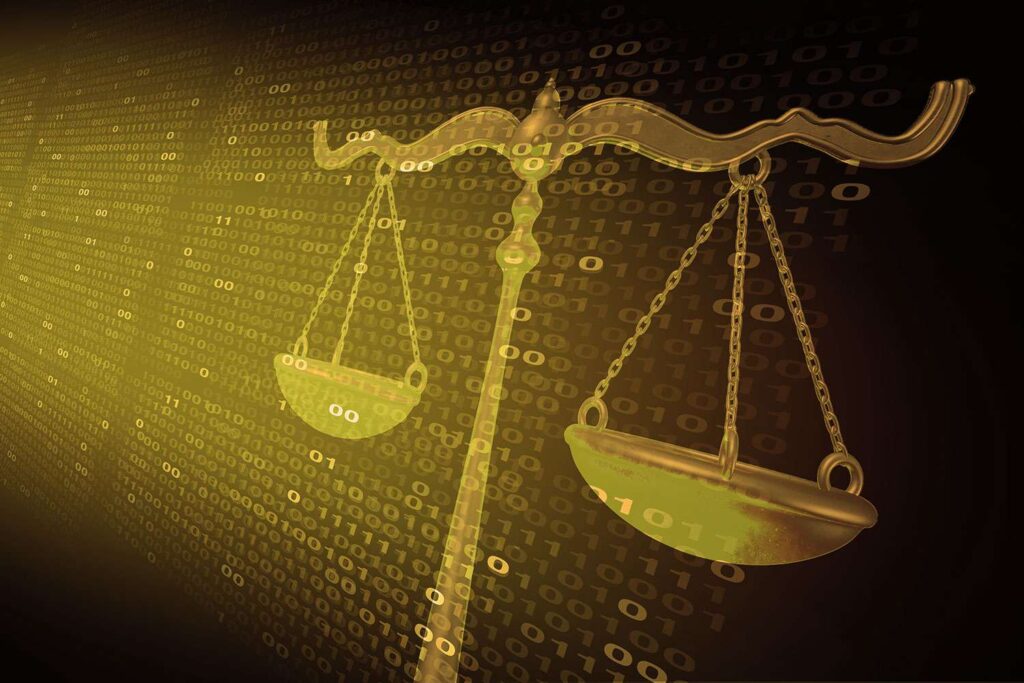
Legal Pillars of Property Ownership: A Comprehensive Property Law Guide
Property ownership is a fundamental aspect of our society, and understanding the legal framework behind it is crucial to ensure a smooth and secure ownership experience. In this comprehensive property law guide, we delve deep into the legal pillars that govern property ownership, covering everything from basic concepts to the legal processes involved in property acquisition and transfer. Whether you’re a prospective property buyer, a current owner, or simply interested in property law, this guide aims to provide you with valuable insights and knowledge.
Understanding Property Law: An Overview
Before we delve into the specifics, let’s start with a broad overview of what is property law. Property law is a branch of civil law that deals with the rights and responsibilities associated with owning, using, and transferring immovable property. It encompasses a wide range of legal principles and rules that govern property-related matters.
Property law is a complex and multifaceted area of law that plays a crucial role in society. It not only provides individuals with the legal framework to establish and protect their property rights but also ensures the orderly transfer and use of property in a fair and just manner.
The Basics of Property Law
At its core, property law establishes the legal framework for defining and protecting property rights. It covers concepts such as ownership, possession, and use of property, as well as the ways in which property can be legally acquired, transferred, or disposed of.
Ownership is a fundamental concept in property law. It refers to the exclusive rights and control that an individual or entity has over a particular piece of property. Ownership grants the owner the right to use, enjoy, and dispose of the property, subject to certain legal limitations and restrictions.

Possession, on the other hand, refers to the physical control and occupation of a property. Possession does not necessarily equate to ownership, as someone can possess a property without being the legal owner. However, possession can be a crucial factor in determining ownership rights in certain situations.
Property law also governs the use of property. It sets out the rights and responsibilities of property owners, including the right to use the property for certain purposes and the obligation to maintain the property in a safe and habitable condition. Additionally, property law regulates the use of common areas and shared resources in multi-unit properties, such as condominiums or apartment complexes. Click here to get also about expertise of insolvency lawyers.
Furthermore, property law provides mechanisms for the acquisition, transfer, and disposal of property. These mechanisms include contracts, deeds, and other legal instruments that facilitate the lawful transfer of property from one party to another. For example, a deed is a legal document that transfers ownership of real property from one party to another, while a mortgage is a financial agreement that allows a borrower to use real property as collateral for a loan.
Key Terms in Property Law
As we explore property law further, it is crucial to familiarize ourselves with key terms commonly used in this field. Some of these terms include:
- Real property: Refers to land and anything permanently attached to it, such as buildings or fixtures.
- Personal property: Refers to movable objects, including vehicles, furniture, and personal belongings.
- Deed: A legal document that transfers ownership of real property from one party to another.
- Mortgage: A financial agreement that allows a borrower to use real property as collateral for a loan.
- Tenant: An individual or entity that occupies and possesses property under a lease or rental agreement.
- Easement: A legal right that allows someone to use another person’s property for a specific purpose, such as accessing a neighboring property or using a shared driveway.
- Adverse possession: A legal doctrine that allows a person to acquire ownership of another person’s property through continuous and open possession for a specified period of time, usually several years.
These terms are just a glimpse into the vast and intricate world of property law. Understanding these key concepts and principles is essential for navigating property-related matters and ensuring the protection of your rights as a property owner or occupant.
The Legal Framework of Property Ownership
Now that we have a firm grasp of the basics, let’s explore the legal framework that underlies property ownership.
Property ownership is a fundamental right that is protected by various legal provisions and statutes. These laws are in place to ensure that individuals have the right to own, use, and dispose of property, and to safeguard their interests.
Constitutional Provisions on Property Ownership
In many countries, property ownership is protected by constitutional provisions that ensure individuals have the right to own, use, and dispose of property. These provisions serve as the bedrock of property rights and are designed to safeguard property owners’ interests.
Constitutional provisions on property ownership vary from country to country. For example, in some countries, property rights are considered fundamental human rights and are explicitly stated in the constitution. These provisions often outline the scope of property rights, the limitations that may be imposed by the government, and the procedures for acquiring and transferring property.
Constitutional provisions may also address the issue of eminent domain, which is the power of the government to take private property for public use. In many countries, the constitution provides safeguards to ensure that property owners are compensated fairly when their property is taken through eminent domain.

Statutory Laws Governing Property Ownership
In addition to constitutional provisions, property ownership is also governed by statutory laws enacted by legislatures. These laws provide detailed regulations on various aspects of property ownership, including property rights, land use, zoning, and environmental considerations.
Statutory laws governing property ownership can vary widely depending on the jurisdiction. They may define the rights and responsibilities of property owners, outline the procedures for transferring property, and establish the mechanisms for resolving disputes related to property ownership.
Land use and zoning laws are an important aspect of property ownership. These laws regulate how property can be used and developed, and they often aim to balance the interests of property owners with the broader public interest. Zoning laws, for example, may designate certain areas for residential, commercial, or industrial use, and impose restrictions on the types of activities that can take place in each zone.
Environmental considerations are also a significant part of property ownership laws. These laws aim to protect natural resources, prevent pollution, and ensure sustainable development. They may require property owners to obtain permits for certain activities that could have an impact on the environment, such as building construction or land development.
Overall, the legal framework of property ownership is a complex and multifaceted system that encompasses constitutional provisions and statutory laws. These laws provide the necessary structure and protection for property owners, ensuring that their rights are respected and their interests are safeguarded.
Types of Property Ownership
Now that we have explored the legal framework, let’s turn our attention to the different types of property ownership.
Understanding the various forms of property ownership is essential for both individuals and businesses. Each type of ownership carries its own set of rights, responsibilities, and considerations. Let’s delve deeper into the three main types of property ownership: individual ownership, joint ownership, and corporate ownership.
Individual Ownership
Individual ownership is the most common form of property ownership, where an individual holds sole ownership rights to a property. This type of ownership provides individuals with full control over their property without the need for consent or approval from anyone else.
Individual ownership offers numerous advantages. Firstly, it allows individuals to make independent decisions regarding their property, such as making alterations or selling it. Secondly, individuals can enjoy the benefits of any increase in property value, as they are the sole owners. However, individual ownership also comes with certain responsibilities, such as paying property taxes and maintaining the property.
Joint Ownership
Joint ownership, also known as co-ownership, occurs when two or more individuals hold ownership rights to a property together. This type of ownership can be established through various legal arrangements, such as joint tenancy or tenancy in common.
Joint ownership can be an attractive option for individuals who want to share the financial burden of owning a property. It can also be beneficial for families or couples who want to invest in real estate together. However, joint ownership requires clear communication, trust, and a well-defined agreement to avoid conflicts or disputes. It is crucial to establish the rights and responsibilities of each co-owner, including the division of expenses and decision-making processes.

Corporate Ownership
In certain cases, property ownership is held by corporations or other legal entities. Corporate ownership allows businesses to acquire and hold property for various purposes, such as operating offices or warehouses.
Corporate ownership offers several advantages for businesses. Firstly, it provides limited liability protection, meaning that the owners’ personal assets are separate from the company’s assets. Secondly, it allows for easier transfer of ownership, as shares can be bought or sold. Additionally, corporate ownership can provide tax benefits and enhance the company’s credibility. However, establishing and maintaining a corporation involves legal and administrative complexities, such as compliance with corporate laws and regulations.
Understanding the different types of property ownership is crucial for individuals and businesses alike. Whether you are considering purchasing a property for personal use or as an investment, it is essential to weigh the advantages and disadvantages of each ownership type and choose the one that aligns with your goals and circumstances.
Rights and Responsibilities of Property Owners
As property owners, individuals and entities have specific rights and responsibilities that come with property ownership.
Understanding Property Rights
Property rights encompass a wide range of entitlements associated with owning property. These rights typically include the right to possess, use, transfer, and exclude others from the property.
Obligations of Property Owners
Alongside rights, property owners also have certain obligations towards their property and the surrounding community. These obligations may include maintaining the property in a safe and habitable condition, paying property taxes, and complying with local zoning and building regulations.
Legal Processes in Property Acquisition and Transfer
Now, let’s shift our focus to the legal processes involved in acquiring and transferring property.
Legal Steps in Buying Property
When buying a property, several legal steps must be taken to ensure a smooth and lawful transaction. These steps typically include conducting due diligence, negotiating the purchase agreement, transferring ownership through a deed, and registering the property with the appropriate authorities.
Legal Aspects of Selling Property
Similarly, when selling a property, various legal aspects must be considered. These aspects may include preparing the necessary legal documents, addressing any encumbrances or liens on the property, and complying with disclosure requirements.
Conclusion
In conclusion, understanding the legal pillars of property ownership is crucial for all individuals and entities involved in property-related matters. By familiarizing ourselves with property law concepts, the legal framework, and the rights and responsibilities of property owners, we can navigate the world of property ownership with confidence and ensure a secure and lawful ownership experience.
